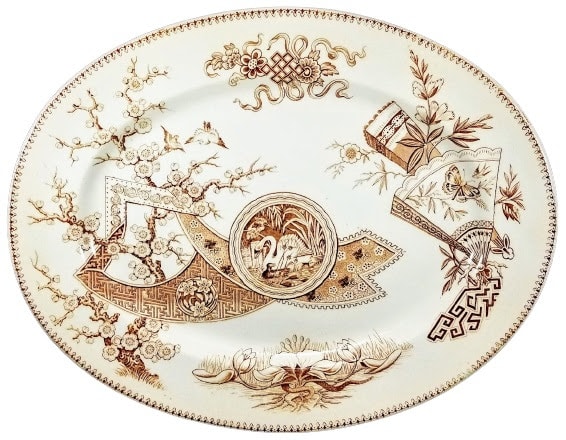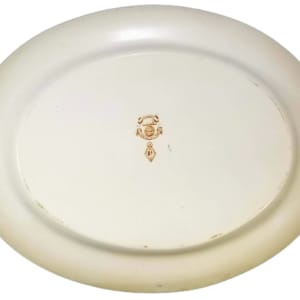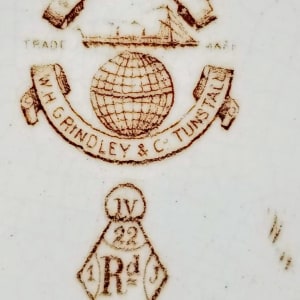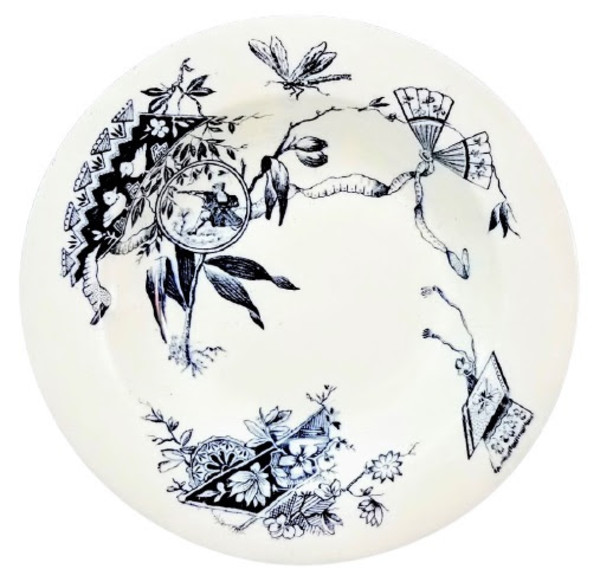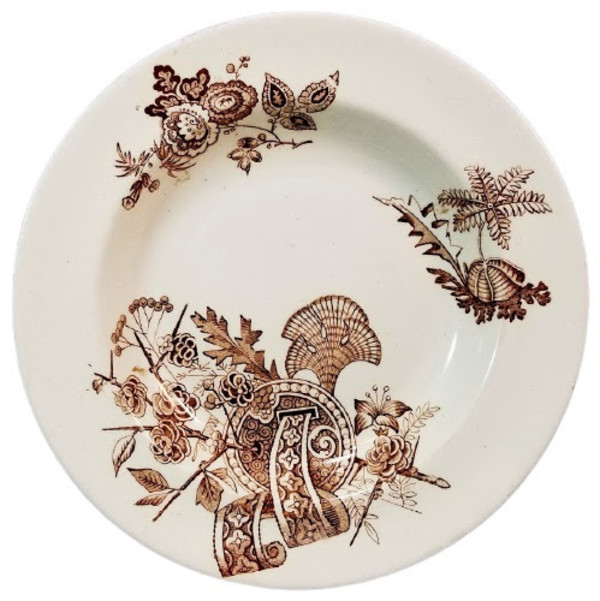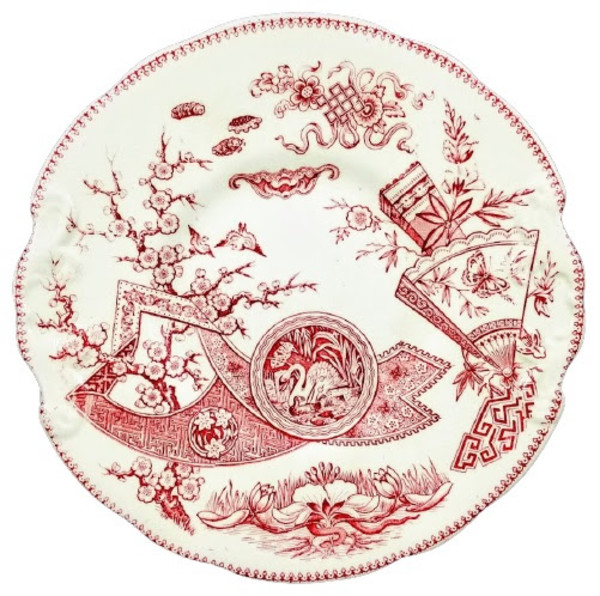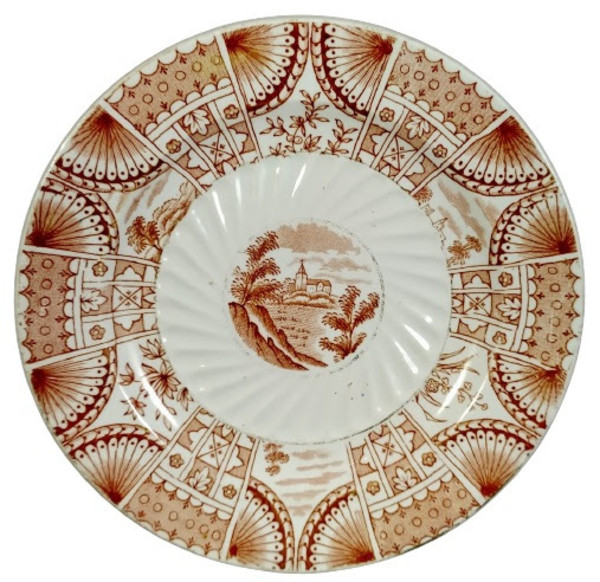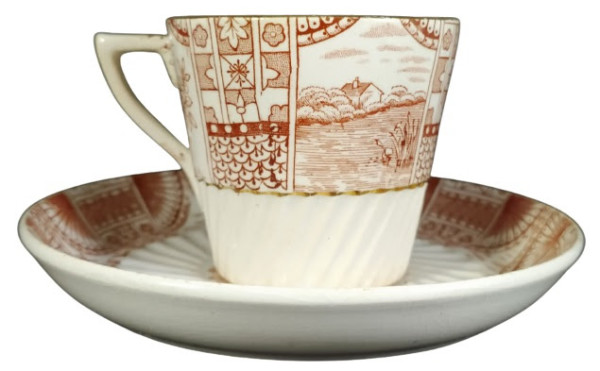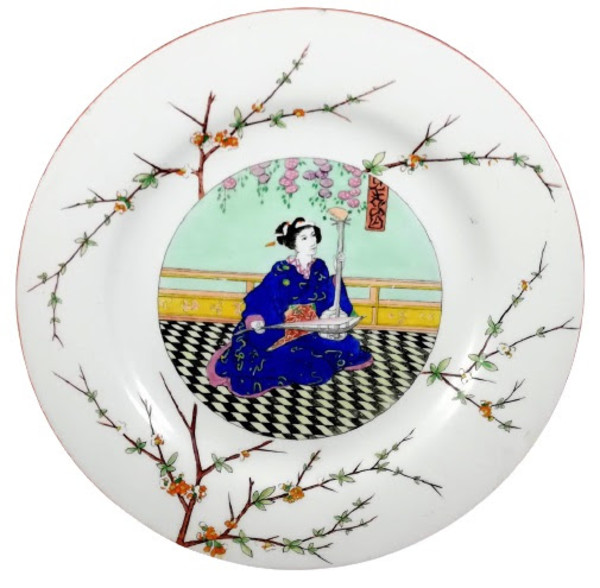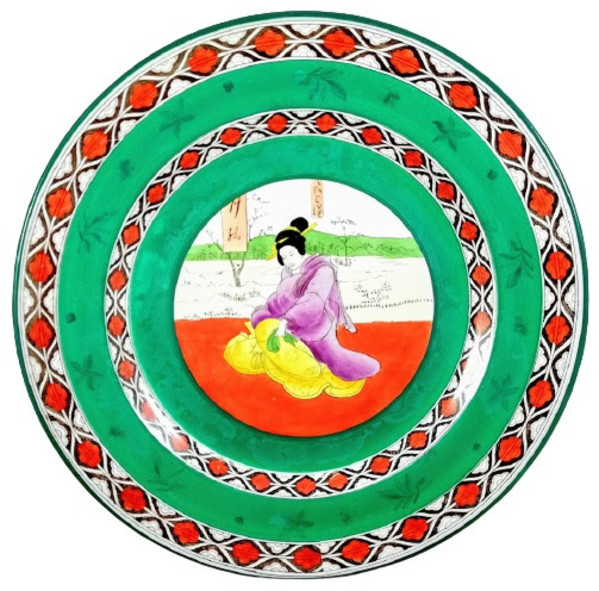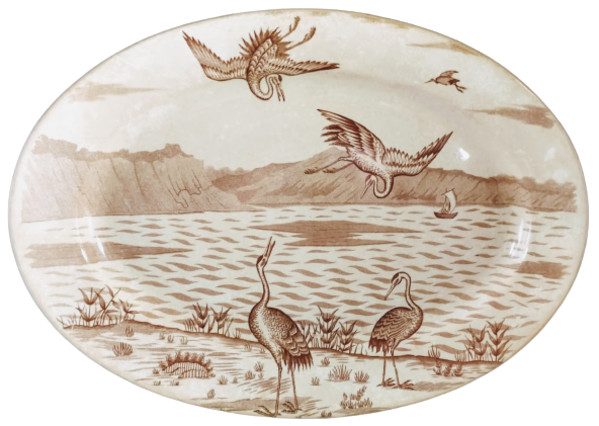- W. H. Grindley & Co.
- Japanese, Rd. 22 June 1880
- Earthenware
- 16.75 x 13.25 in (42.55 x 33.66 cm)
-
Not For Sale
Platter, 16.75 x 13.25 inches. Brown transfer. Printed maker's mark for W. H. Grindley & Co. The registry diamond dates the pattern registration to 22 June 1880. This rather jumbled pattern is typical of many transferware styles of the Aesthetic Movement. The urge to incorporate all things Japanese led to many images that were symbolic of that culture. The main motif here is a folded ribbon filled with geometric and floral patterns, including a key fret pattern. Two mon, or circular cartouches, are superimposed over the ribbon. The smaller features three flowers and the larger a swan in water. A flowering prunus branch is threaded through the opening formed by the overlapping ribbon. Below this motif is a large waterlily blossom and pads with a snake curled around its underwater stems. There are two folding fans, one decorated with a butterfly, superimposed over flowering stems and a patch of the key-fret pattern. There are two songbirds in flight and a highly-stylized Asian bat form. There are three unusual grouped shapes which may represent Asian cloud forms. At the top is a Buddhist endless knot bordered on the left and right by flowers and laid over curling ribbons.
The company was founded at the Newfield Pottery in 1880 by William Harry Grindley (principal partner) and Mr. Turner (the '& Co.') They produced Earthenware and Ironstone China - particularly for the Canadian, United States, South American and Australian markets. In 1891 the company moved to the Woodfield Pottery, Woodland Street, Tunstall.
- Subject Matter: Aesthetic (Japonesque)
- Collections: Aesthetic Transferware, W. H. Grindley & Co.
